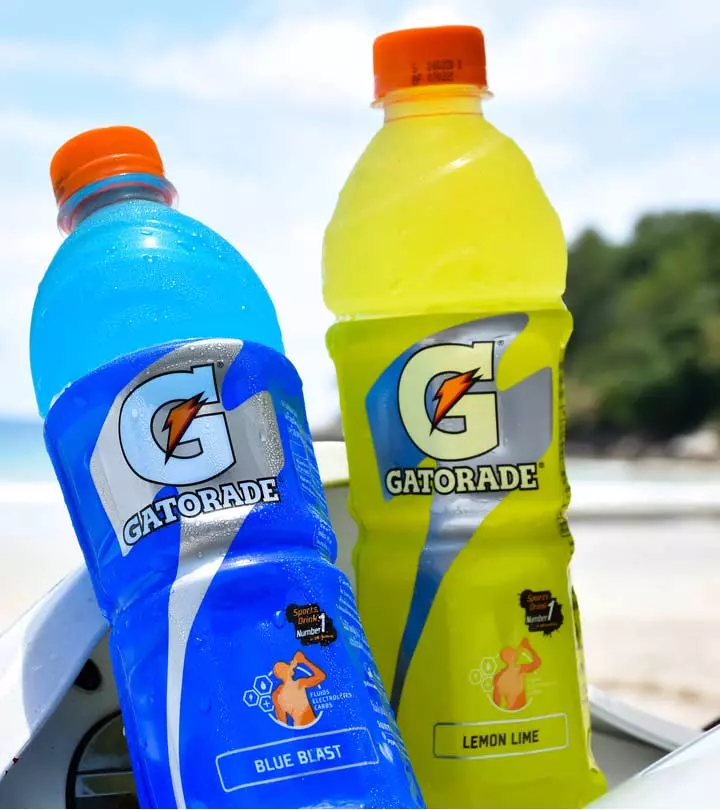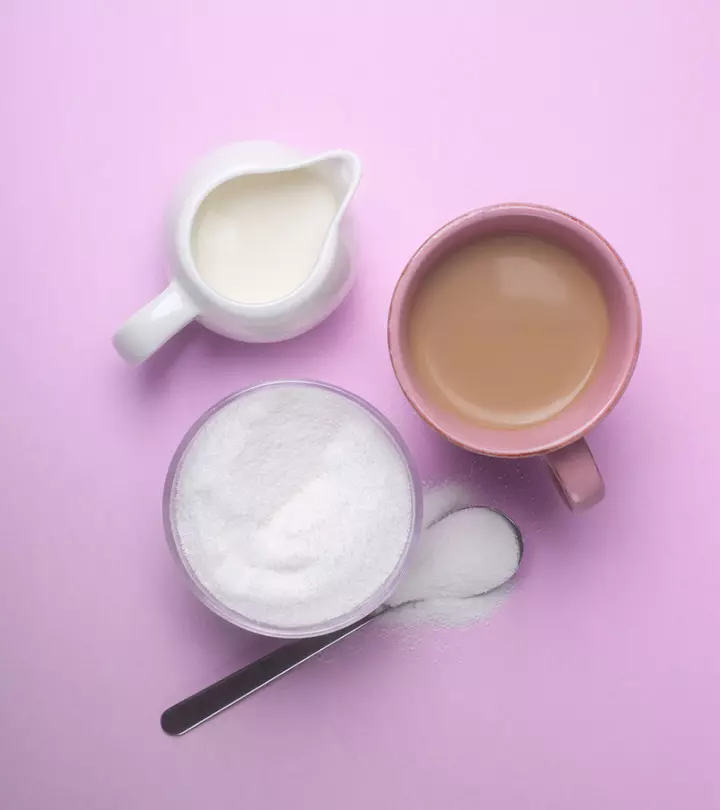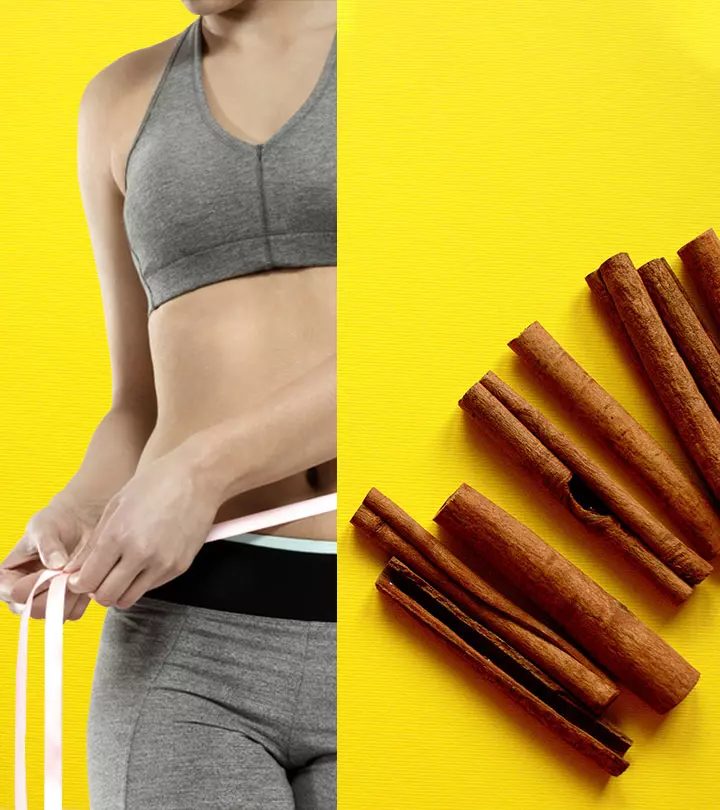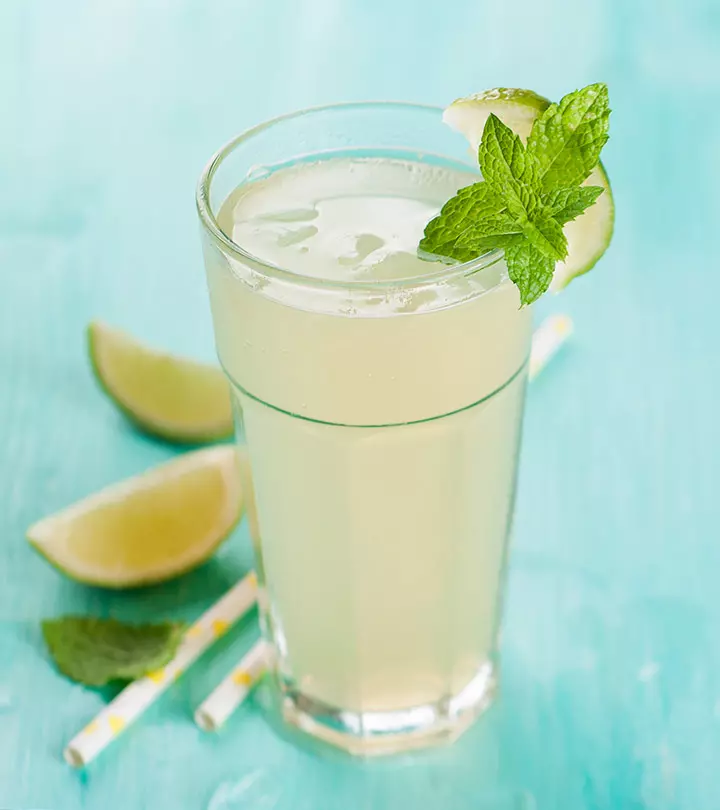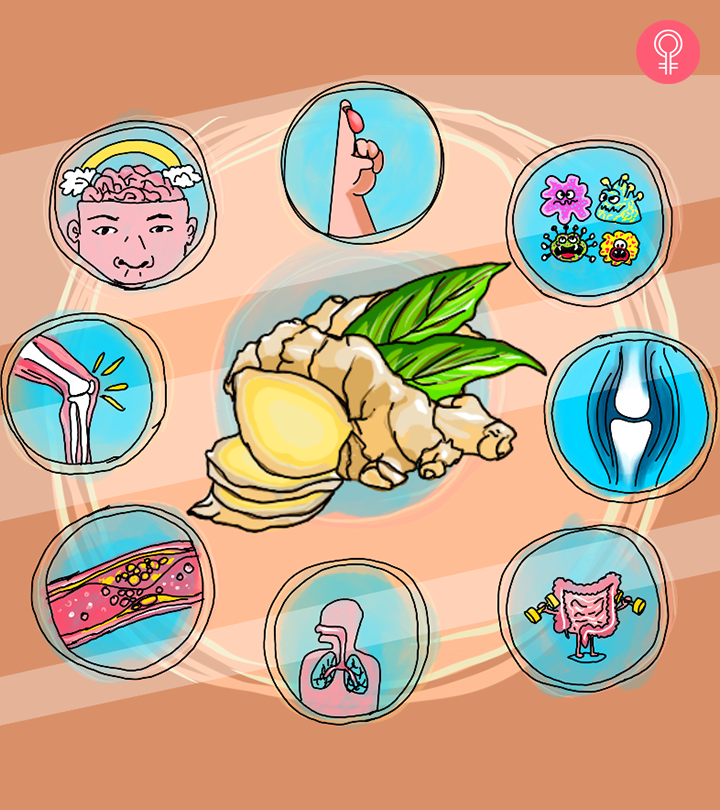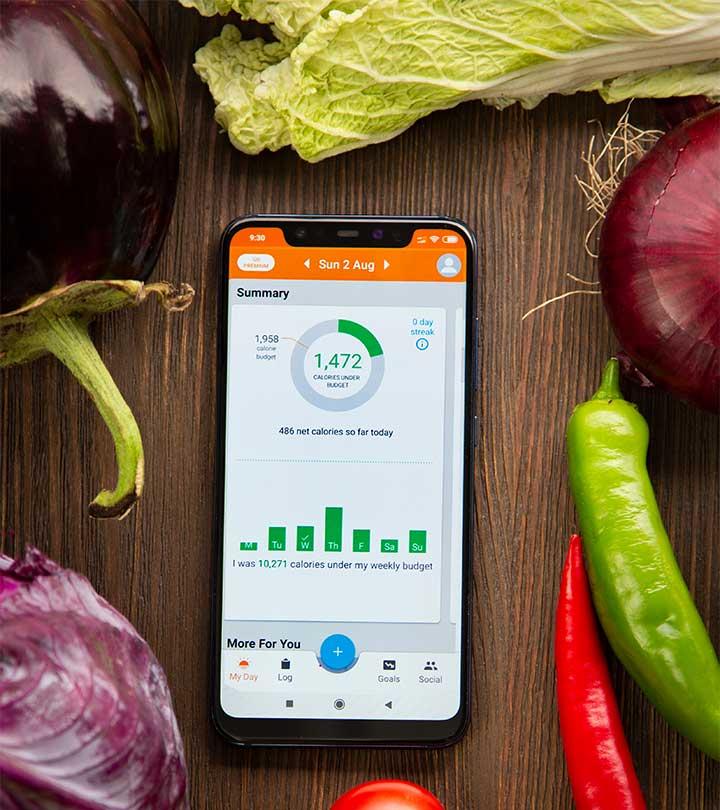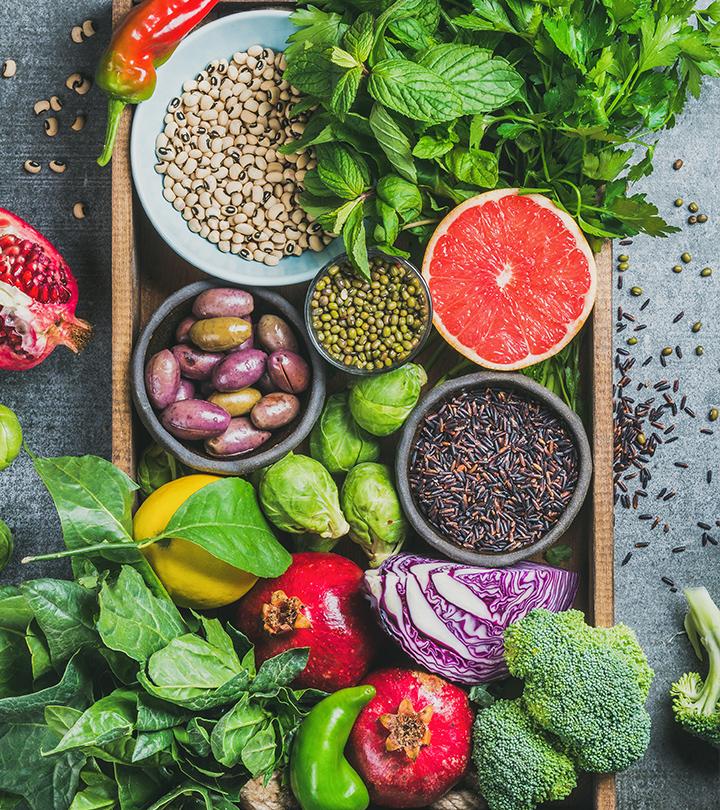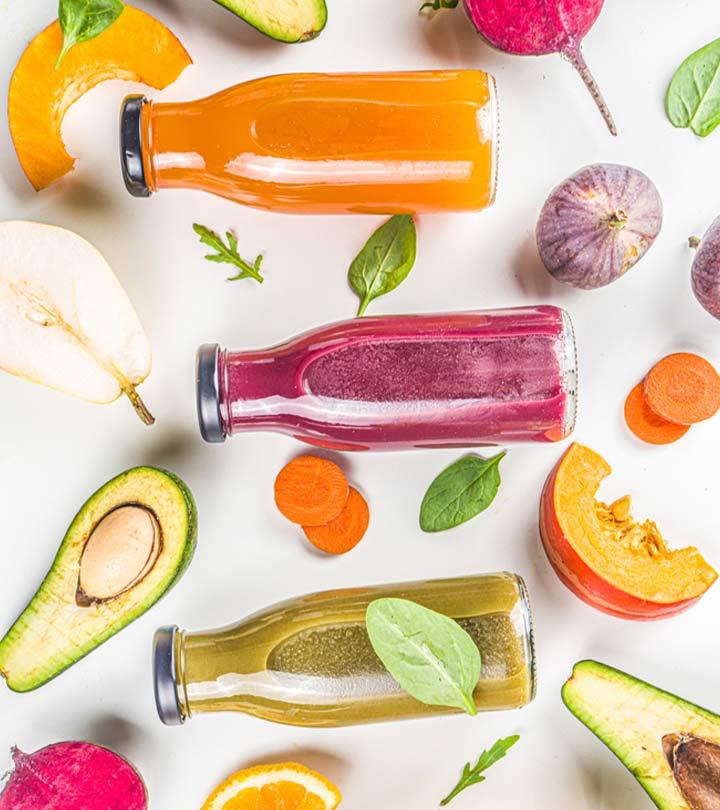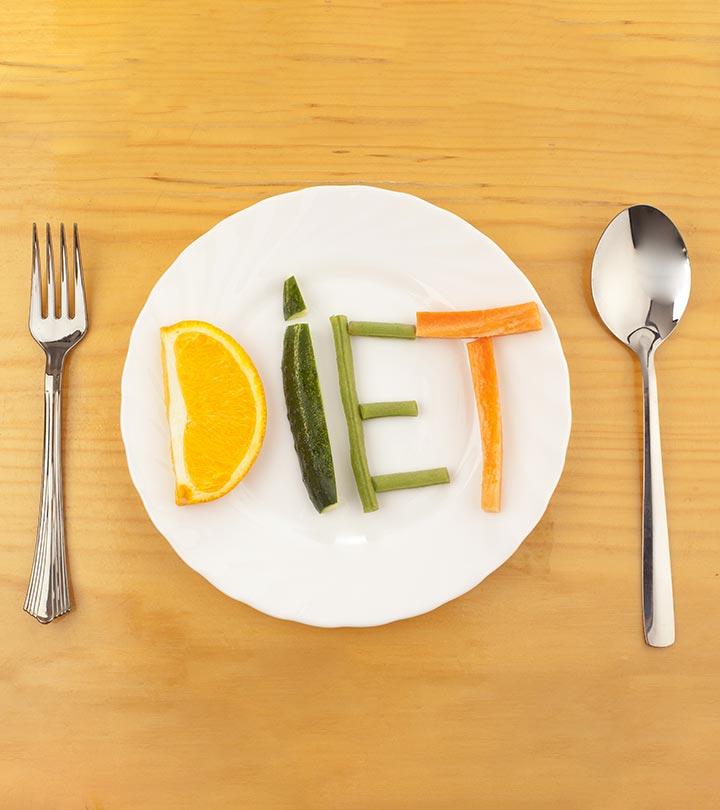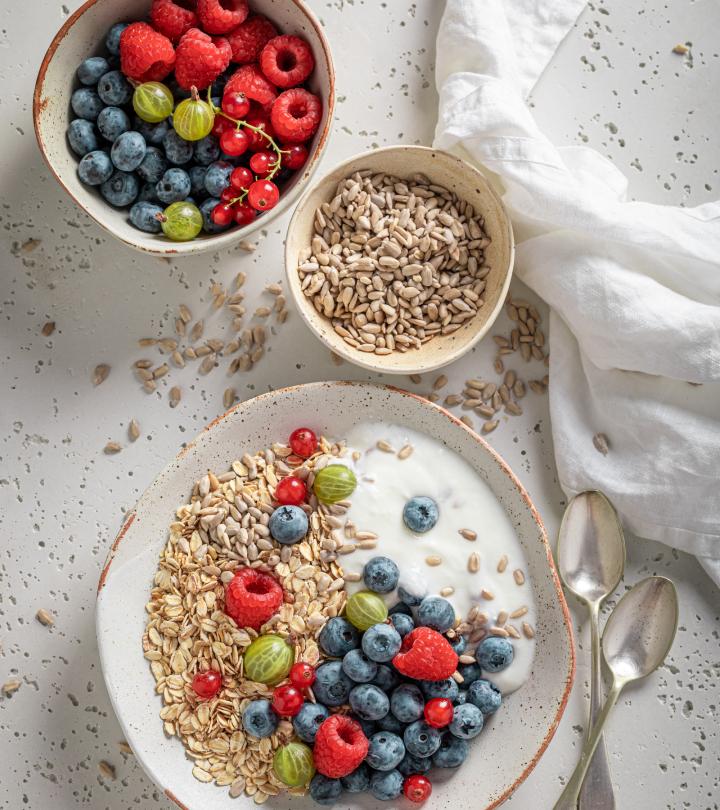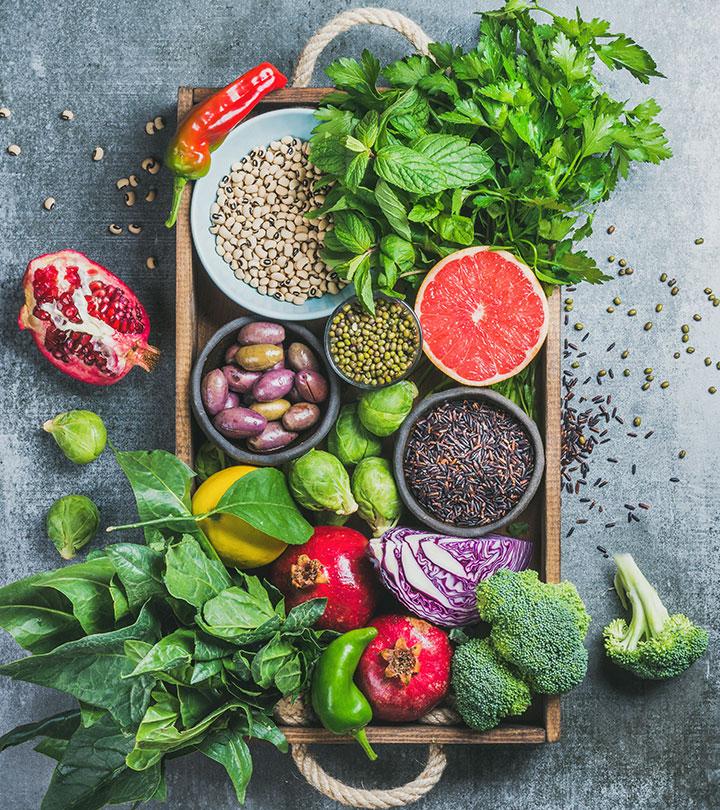What Is Diet Soda? What Are Its Benefits And Side Effects?
Unravel the truth behind the zero-calorie beverage and its impact on health.

Image: Shutterstock
Diet soda is marketed as a harmless beverage that does not cause weight gain. It is usually labeled as zero-calorie, but is it really? “Diet soda contains artificial sweeteners and is less in calories than regular soda. Hence, they are preferable if you are on a diet and would like to enjoy a soda once in a while,” says Dr. Carrie Lam, MD, FAAMFM, ABAARM. But, drinking too many diet sodas every day is certainly not advisable. “The artificial sweeteners in diet beverages and foods can cause numerous health issues,” warns Dr. Lam.
In this article, doctors and health experts help us unravel the good, the bad, and the ugly side of diet soda. Scroll down to get the right information!
In This Article
What Is Diet Soda?
Diet soda is carbonated water with a low or no-calorie sweetener (LNCS). It is termed “diet” as it contains artificial sweeteners that are low or have no calories, making them a better option than regular soda. Diet soda is a mix of different ingredients.
 Trivia
TriviaWhat Does Diet Soda Contain?
- Carbonated Water: It is water infused with carbon dioxide under pressure and makes the soda fizzy (1).
- Aspartame: It is an artificial sweetener invented in 1965 by James M. Schlatter. Unlike saccharin, aspartame does not have a bitter after taste, and it is 200 times sweeter than sugar. It is FDA-approved, and the recommended dosage for adults and children in the US is 50 mg/kg body weight (2).
- Color: The commonly used colors in diet sodas are caramels, carotenoids, and anthocyanins (1).
- Acids: Acids like malic, phosphoric, and citric acids add a tartness to the diet soda (1).
- Flavors: Natural or artificial flavors like cola, fruits, and herbs are added in diet soda (1).
- Caffeine: Like regular soda, diet soda also contains caffeine. The caffeine content ranges from 35-46 mg, depending on the brand (1).
- Preservatives: All diet sodas contain preservatives to increase their shelf life. Potassium benzoate is the commonly used preservative in diet sodas (1).
- Vitamins And Minerals: A few diet sodas are fortified with vitamins and minerals. But not all.
Before breaking down why drinking diet soda may not be a “healthy” choice, let’s discuss what is so good about diet soda. Scroll down.
What Is Good About Drinking Diet Soda?
Dr. Keith-Thomas Ayoob, EdD, RD, FAND, says, “Diet soda is a tool for people who want to reduce the added sugar in their diets.”
Dr. Morton Tavel, MD, points out, “Artificial sweeteners are central to the huge market of diet and sugar-free foods and drinks. They are cheap and have the potential to combat the increasing threat of obesity and associated health impacts.”
He adds, “Your body doesn’t absorb sugar alcohols (artificial sugar) completely, so they don’t affect your blood sugar levels as much as sugar, and other carbohydrates do. However, if you have diabetes, it’s important to consider sugar alcohols to manage your blood sugar levels.”
However, sugar alcohols, preservatives, and colors in diet soda may cause harm if you consume too much of it. Let’s find out what the experts say in the section below.
Health Risks Of Drinking Too Much Diet Soda
Holistic health coach Virginia Gruhler remarks, “The marketed benefit of diet soda is having little to no calories. However, no calories doesn’t always mean it is better!” According to the National Kidney Foundation, women who consumed soda had a 30% higher reduction in kidney function in 20 years than women who did not drink diet soda (3).
Dr. Lam says, “As these drinks are termed calorie-free, technically, they should help in weight loss and prevent any sugar-related issues, such as diabetes and metabolic syndrome. However, there is hardly any evidence to support these health claims.” She adds, “Artificial sweeteners are not inert by nature. They can alter the gut bacteria, and metabolism, and can also be linked to type 2 diabetes (4).”
In a study, 9,102 Australian school students aged 12–17 years were surveyed in 2018 to learn about the nutritional consequences of consuming diet soda regularly. Around 22.2 % of the participants were able to guess the sugar content of the soda correctly. The results showed that 87.4% of the participants agreed that drinking 600 ml of diet soda every day may lead to health problems.
A study showed that increased diet soda consumption caused abdominal weight gain and increased the risk of cardiometabolic diseases (5). Let’s place each ingredient of diet soda under the microscopic lens of scientific research and examine why drinking too much of diet soda is not good for you:
1. The Aspartame In Diet Soda May Increase Hunger
Aspartame consists of two amino acids (a unit of protein) – aspartate and phenylalanine. And just like sugar, aspartame contains 4 calories per gram. However, drinking too much diet soda changes the equation. Scientists found that aspartame increased hunger, leading to more calorie consumption (6).
“Overall, considering that artificial sweeteners are essentially calorie-free, the data on their positive health impacts is perhaps a bit disappointing, especially since the prevalence of obesity and weight gain have tripled in the last 50 years, despite the popularity of low-calorie sweeteners and their ubiquity,” says Dr. Morton Tavel, MD. According to World Health Organization, more than 1 in 3 adults around the world aged 18 years and older were overweight (7).
 Trivia
Trivia2. It Contains Caramel Color That May Be Carcinogenic
Caramel color is made by heating corn or cane sugar and other carbohydrates. You must avoid all sugars and carb sources (bad carbs) if you are trying to lose weight. Moreover, caramel color might be a potent carcinogen and requires stricter regulations (8).
3. The Acids May Cause Tooth Decay And Kidney Stones
Phosphoric acid adds tartness to diet sodas. A study confirmed that phosphoric acid could damage the tooth enamel (9). Plus, many scientific studies suggest that phosphoric acid may also trigger kidney stone formation (10), (11).
4. It May Cause Metabolic Syndrome
Insulin is produced by the beta cells of the pancreas. It carries glucose molecules from the bloodstream to the cells, where they are converted to energy in the form of ATP. When you drink diet soda, the artificial sweetener prompts the brain to signal the beta cells to secrete insulin (12). But there are not enough glucose molecules to shuttle into the cells. This confuses the brain, and gradually, your body starts developing metabolic syndrome.
5. It May Impact Bone Health
Regular high intake of diet soda can lead to weaker bones and consequently, other medical complications associated with it. Research has found that regular as well as diet sodas have the potential to reduce bone mineral density and contribute to fractures if the intake is too high. Increased soda intake may lead to a 14% increase in the risk of hip fractures. The study recommends a limit of 1-2 servings of sodas per week for better bone health (13). However, it is important to note that research is limited regarding the exact effects of diet sodas on human bone health.
6. It May Cause Diet Soda Addiction
Regularly consuming artificial coloring and flavoring agents through diet colas will make you crave them (6). “Artificial sweeteners train your brain and taste buds to want more sugar, which can lead to addiction, irritability, and obsessiveness,” says Virginia Gruhler.
A YouTuber shares their 30-day journey of quitting diet soda. The video documents their experience, including the challenges faced in resisting strong cravings, exploring alternatives to diet soda, and the temptation encountered during real-life situations. She mentions, “I learned that quitting diet soda does not really have a big impact on my blood sugar levels (i).”
Yes, diet soda addiction is for real. How do you know if you are addicted to diet soda? Check for these symptoms.
Symptoms That You Are Drinking Too Much Diet Soda
- Bloating
- Sugar craving
- Craving for munchies
- Dehydration
- Poor digestion
- Abdominal obesity
- Overall weight gain
- Unable to quit
If you have these symptoms, you know you are drinking too much diet soda. Is there a safe limit to drinking diet soda per day? Scroll down to find out.
How Much Diet Soda Is OK Per Day?
If you have diabetes or want to cut down your daily sugar intake, you may drink a can of diet soda in a day. However, Virginia Gruhler warns, “Since artificial sweeteners are designed to be addictive, I would recommend cutting down soda completely!”
You may never notice when a can of diet soda will become multiple cans per day. Hence, it is best to stay off it. Instead, try the following safer alternatives.
Alternatives To Diet Soda
- Iced tea with soda water
- Seltzer with orange juice
- Cold lassi or buttermilk
- Homemade lemonade with soda water
- Kombucha
- Other juices without artificial sweeteners
- Homemade fruit infused water
- Cold herbal teas
Scroll through to the next section for expert advice for adults and kids who drink too much diet soda per day.
Expert’s Advice For Adults And Kids
“Too much of anything is bad. If it’s crowding out healthful foods like fruits and vegetables, low-fat or fat-free milk, then that is a red flag you need to avoid. Cut back diet soda gradually. Make homemade low and no-calorie drinks, or drink plain water,” advises Dr. Keith-Thomas Ayoob, EdD, RD, FAND.
Gruhler suggests, “Make one small change every day! You don’t have to quit entirely, but gradually decrease your amount every day and see how you feel! Most people who quit soda report improved migraines, less depression, less IBS, and decreased weight.”
The Takeaway
Diet soda has fewer calories due to the use of artificial sweeteners like aspartame. But despite its low-calorie content, there is no scientific evidence to prove that it aids in weight loss. In fact, it is said to cause addiction instead and increase appetite, leading to excess intake. Moreover, its ingredients, like aspartame, the added colors, and preservatives may increase the risk of metabolic syndrome and cancer. Hence, do not overdo this carbonated drink. Also, if possible, shift to alternatives like cold lassi, iced tea with soda water, etc.
Frequently Asked Questions
Is diet soda worse for you than regular soda?
While diet soda is usually marketed as containing zero or no calories, it may not be any better than regular soda if consumed regularly in the long run.
Does diet soda make you gain weight?
Yes, diet soda is laced with artificial sweeteners and preservatives that may lead to weight gain over time.
Key Takeaways
- Diet soda contains artificial sweeteners and has fewer calories than ordinary soda.
- However, higher diet soda consumption may result in abdominal weight gain and an increased risk of cardiometabolic disorders.
- It may also make you crave more food, lead to a diet soda addiction, and have other negative consequences.
- Consider healthier alternatives like herbal teas, homemade lemonade, buttermilk, and so on.
Discover the truth about diet soda from the video below. Learn about common myths surrounding sugar and calorie content and gain insights for understanding its impact on your overall health. Click play to find out more.
Personal Experience: Source
StyleCraze's articles are interwoven with authentic personal narratives that provide depth and resonance to our content. Below are the sources of the personal accounts referenced in this article.
(i) I quit diet soda for 30 days. This happened.https://www.youtube.com/watch?v=venYLZsDo24
References
Articles on StyleCraze are backed by verified information from peer-reviewed and academic research papers, reputed organizations, research institutions, and medical associations to ensure accuracy and relevance. Read our editorial policy to learn more.
- Carbonated Beverages
https://www.sciencedirect.com/science/article/pii/B9780081005965032406 - Aspartame—True or False? Narrative Review of Safety Analysis of General Use in Products
https://www.ncbi.nlm.nih.gov/labs/pmc/articles/PMC8227014/ - Say No To That Diet Soda?
https://www.kidney.org/news/kidneyCare/spring10/DietSoda - Artificially Sweetened Beverages and the Response to the Global Obesity Crisis
https://journals.plos.org/plosmedicine/article?id=10.1371/journal.pmed.1002195 - Diet soda intake is associated with long-term increases in waist circumference in a bi-ethnic cohort of older adults: The San Antonio Longitudinal Study of Aging
https://www.ncbi.nlm.nih.gov/labs/pmc/articles/PMC4498394/ - Gain weight by “going diet?” Artificial sweeteners and the neurobiology of sugar cravings
https://www.ncbi.nlm.nih.gov/labs/pmc/articles/PMC2892765/ - WHO urges global action to curtail consumption and health impacts of sugary drinks
https://www.who.int/news/item/11-10-2016-who-urges-global-action-to-curtail-consumption-and-health-impacts-of-sugary-drinks - Caramel Color in Soft Drinks and Exposure to 4-Methylimidazole: A Quantitative Risk Assessment
https://www.ncbi.nlm.nih.gov/labs/pmc/articles/PMC4333292/ - Pop-Cola Acids and Tooth Erosion: An In Vitro In Vivo Electron-Microscopic and Clinical Report
https://www.ncbi.nlm.nih.gov/labs/pmc/articles/PMC2997506/ - Carbonated Beverages and Chronic Kidney Disease
https://www.ncbi.nlm.nih.gov/labs/pmc/articles/PMC3433753/ - Soda and Other Beverages and the Risk of Kidney Stones
https://www.ncbi.nlm.nih.gov/labs/pmc/articles/PMC3731916/ - Ingestion of Diet Soda Before a Glucose Load Augments Glucagon-Like Peptide-1 Secretion
https://www.ncbi.nlm.nih.gov/labs/pmc/articles/PMC2782974/ - Sodas and Colas are associated with an increase in fractures
https://www.ncbi.nlm.nih.gov/pmc/articles/PMC6832823/
Read full bio of Raelene Soler
Read full bio of Ravi Teja Tadimalla
Read full bio of Payal Karnik





